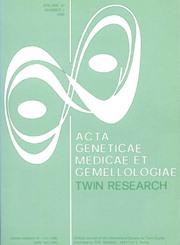Article contents
An Appraisal of Genetic Studies on Leprosy1
Published online by Cambridge University Press: 01 August 2014
Summary
The present paper reviews the research lines which have been explored to evaluate to what extent genetic factors are intervening on the mechanism of resistance and susceptibility to leprosy.
It presents a critical discussion of the investigations on the familial association of leprosy, familial association of leprosy types, intrafamilial contagion of leprosy, concordance of leprosy in twinpairs, racial differences on leprosy prevalence and lepromatous rate, pedigree studies, association of leprosy to genetic markers, Australia antigen, and dermatoglyphic patterns. Space was also allotted to review family and twin-pair studies on the Mitsuda reaction, as well as to the investigation on the in vitro behaviour of blood macrophages against killed M. leprae.
Some areas in which further research on leprosy and genetics may be considered as prioritary are outlined with some detail.
- Type
- Research Article
- Information
- Acta geneticae medicae et gemellologiae: twin research , Volume 21 , Issue 1-2 , April 1972 , pp. 21 - 52
- Copyright
- Copyright © The International Society for Twin Studies 1972
Footnotes
This study was supported by the World Health Organization.
References
REFERENCES
- 11
- Cited by


